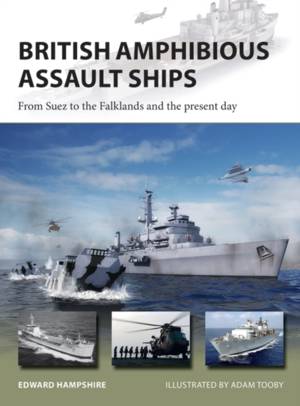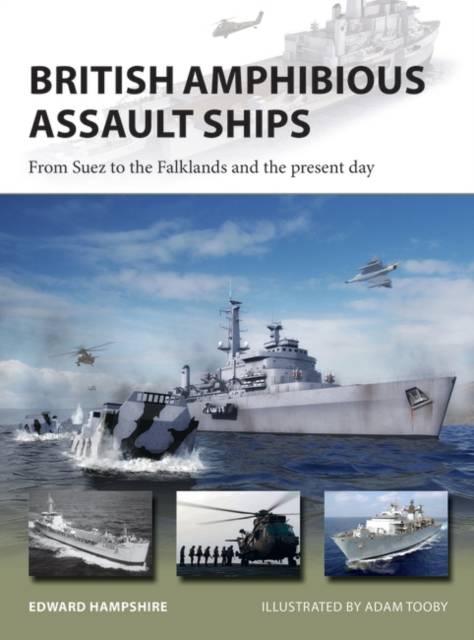
En raison d'une grêve chez bpost, votre commande pourrait être retardée. Vous avez besoin d’un livre rapidement ? Nos magasins vous accueillent à bras ouverts !
- Retrait gratuit dans votre magasin Club
- 7.000.000 titres dans notre catalogue
- Payer en toute sécurité
- Toujours un magasin près de chez vous
En raison de la grêve chez bpost, votre commande pourrait être retardée. Vous avez besoin d’un livre rapidement ? Nos magasins vous accueillent à bras ouverts !
- Retrait gratuit dans votre magasin Club
- 7.000.0000 titres dans notre catalogue
- Payer en toute sécurité
- Toujours un magasin près de chez vous
18,45 €
+ 36 points
Description
From the first "commando carriers" to the legendary Fearless class and the current generation, this title explores the capabilities, roles, and history of the Royal Navy's frontline amphibious assault ships.
Amphibious assault ships have been at the center of nearly all of Britain's expeditionary campaigns since World War II, from the Suez crisis of 1956 to operations as far afield as Borneo (1963-66), the Falklands (1982), Sierra Leone (2000) and Iraq (2003). In major operations such as Suez and the Falklands, the use of amphibious assault ships was essential to the military success of the campaigns. The Suez Crisis saw two of the Royal Navy's former light fleet carriers converted into "commando carriers" to specialize in amphibious warfare. In the 1960s these were followed by the famous Fearless class ships - the first purpose-built amphibious assault ships in the Royal Navy. With an internal dock, headquarters capability, and multiple landing craft, these "Landing Platform Docks" were built to project power around the world. When the Falklands were invaded, HMS Fearless was the key to the successful landing in San Carlos. In the 1990s, a new generation was ordered: the helicopter carrier HMS Ocean and the Albion class LPDs. In recent years Ocean, Albion and Bulwark have been the largest fighting ships of the Royal Navy and have acted as the navy's flagships, as well as being perhaps the most versatile ships in the navy. This title is an essential guide to British Amphibious Assault Ships across the decades, from the mighty Fearless to the modern Albion. Packed with full-color illustrations, contemporary photography, and detailed analysis, this definitive work explores the history, development, and deployment of the Royal Navy's front line.Spécifications
Parties prenantes
- Auteur(s) :
- Editeur:
Contenu
- Nombre de pages :
- 48
- Langue:
- Anglais
- Collection :
- Tome:
- n° 277
Caractéristiques
- EAN:
- 9781472836304
- Date de parution :
- 24-12-19
- Format:
- Livre broché
- Format numérique:
- Trade paperback (VS)
- Dimensions :
- 180 mm x 241 mm
- Poids :
- 181 g

Les avis
Nous publions uniquement les avis qui respectent les conditions requises. Consultez nos conditions pour les avis.






